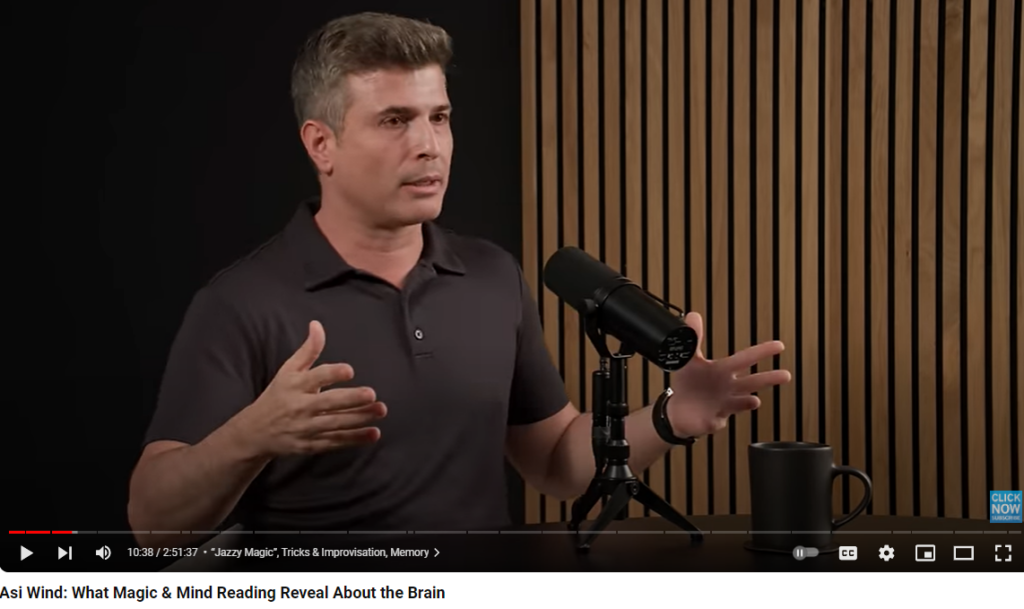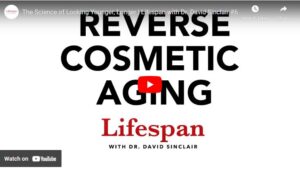In a riveting episode of the Huberman Lab Podcast, Andrew Huberman, a renowned neuroscientist, sat down with Asi Wind, one of the world’s leading magicians and mentalists, to explore the captivating intersection of magic, mentalism, and neuroscience. Their conversation shed light on the profound insights that magic and mentalism offer about the human brain, particularly in the realms of perception, memory formation, and the malleable nature of our reality.
The Art of Magic Through the Lens of Neuroscience
Wind’s approach to magic transcends mere entertainment, delving deep into the cognitive mechanisms that govern our perception and memory. He eloquently explains how magic operates on storytelling and emotional engagement, crucial components in how our brains encode and recall experiences. This intersection of magic and neuroscience illuminates the subtle ways our perceptions can be manipulated, crafting a shared narrative that, while may not have occurred, feels undeniably real to us.
One of the most compelling aspects discussed was the role of misdirection in magic, a technique that exploits the brain’s attentional limitations to create seemingly impossible illusions. This principle is a vivid reminder of our cognitive selectivity, demonstrating how easily our focus can be diverted, making us oblivious to changes in our environment. Huberman points out, “Magicians like Asi Wind are not just entertainers but explorers of the human condition, challenging our perceptions and inviting us to question the boundaries of reality.”
The Science Behind Memory Manipulation
The conversation ventured into the fascinating territory of memory creation and manipulation, a subject where Wind’s expertise offers a unique perspective on the neuroscience of learning and memory. He describes how his performances often involve engineering memories in the audience—memories that may bear little resemblance to the actual sequence of events. This manipulation highlights the malleable nature of our memories, shaped by emotion and the stories we tell ourselves.
Emotion: The Keystone of Memory
A significant takeaway from their dialogue is the impact of emotion on memory retention and recall. Emotions play a pivotal role in how memories are encoded, with emotionally charged events being more vividly remembered. Wind’s performances masterfully intertwine emotion with narrative, ensuring that the memory of the illusion is not just retained but felt. This embeds the experience within the audience’s emotional memory, illustrating the power of emotion in shaping our realities.
Unveiling the Mysteries of the Human Mind
The collaboration between Huberman and Wind provides a compelling narrative on the intricate dance between our cognitive processes and the external world. Their discussion serves as a powerful testament to the wonders of the human mind, revealing that magic is much more than mere trickery—it is a sophisticated exploration of attention, perception, and memory.
As we uncover the mysteries of the mind through the art of magic, we are reminded of the words of Andrew Huberman, “The true magic lies in our capacity to perceive, learn, and remember.” This journey into the neuroscience behind illusion underscores the boundless potential of the human brain to be astonished, to learn, and to evolve.






